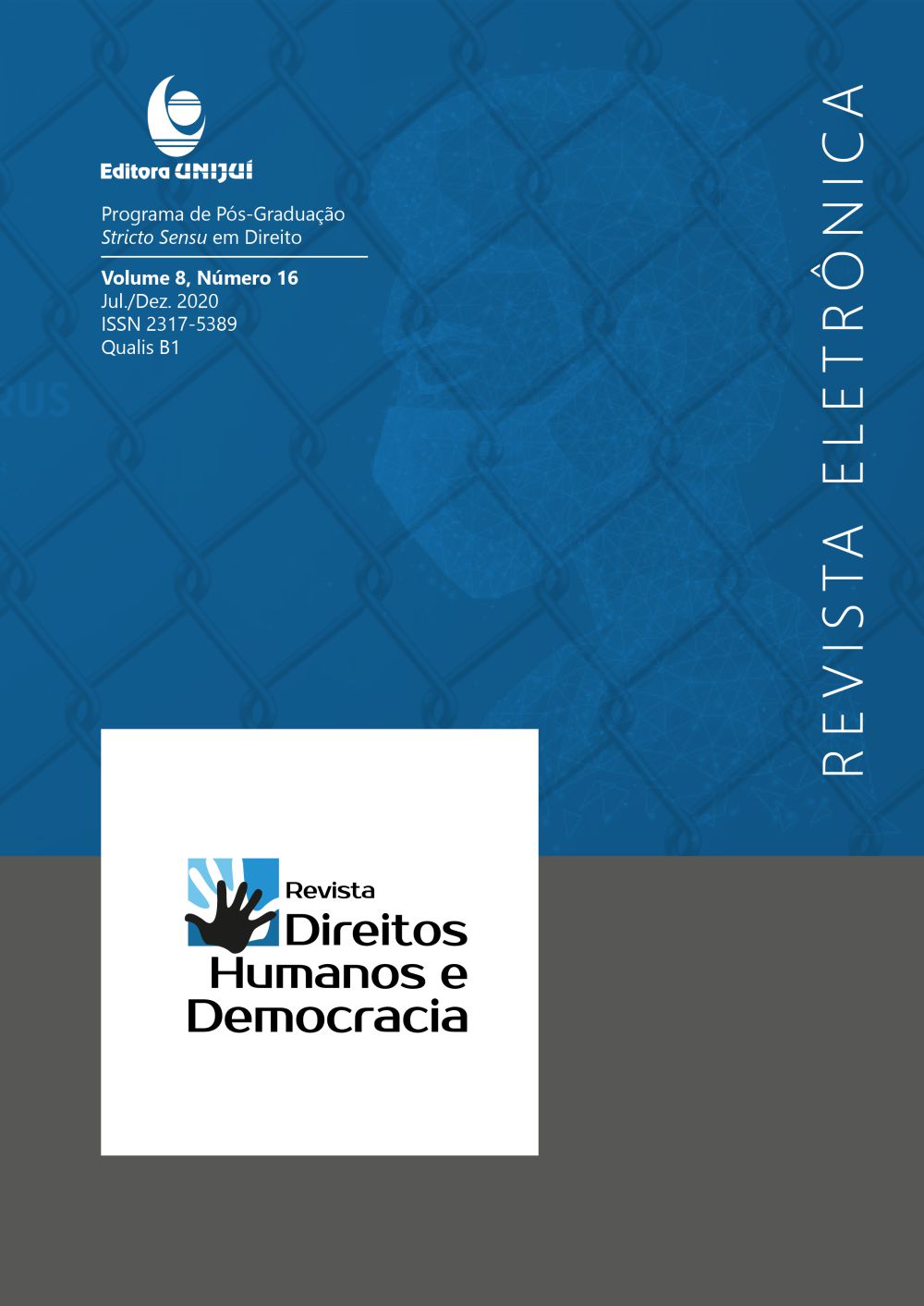MUDANÇAS CLIMÁTICAS E OS REFUGIADOS DO CLIMA COMO UMA QUESTÃO DE SEGURANÇA HUMANA: REPENSANDO A PROTEÇÃO DOS DIREITOS HUMANOS E O MULTILATERALISMO NO SÉCULO 21
DOI:
https://doi.org/10.21527/2317-5389.2020.16.238-259Keywords:
Climate Change, Multilateralism, Climate Refugees, Environmental Refugees, UN, World PeaceAbstract
Climate Change has already had harmful consequences on various dimensions of human life. With robust predictions and several studies that already point to several severe and persistent effects on various aspects of human life in society, these risks range from impacts on energy sources to issues involving food security to social and health problems that displacement. forced caused by it also causes. By the year 2050, an estimated 150 to 250 million people will be forced to leave their homes, communities and their own national territories because of droughts, desertification, rising sea levels, losses. crops, extreme weather events and other adverse effects of climate change. It is, therefore, an announced crisis of human security and of international relations unprecedented in human history. Given this, this paper aims to draw a brief overview of the complex interconnections of this theme and to perform a historical-critical analysis of the current stage of protective protection of this displaced population and the existing institutions of law that can support them and ensure the protection of human dignity, a study conducted mainly from the perspective of Historical Materialism and Risk Society Theory, which seeks to analyze, in particular, the role of the UN and its organs, climate negotiations and international multilateralism in this thematic area of the law and international policy as indispensable elements for the maintenance of world peace.
Downloads
Published
How to Cite
Issue
Section
License
By publishing in the Revista Direitos Humanos e Democracia, authors agree to the following terms:
Articles are licensed under the Creative Commons Atribuição 4.0 Internacional (CC BY 4.0), which allows:
Share — copy and redistribute the material in any medium or format;
Adapt — remix, transform, and build upon the material for any purpose, including commercial use.
These permissions are irrevocable, provided the following terms are respected:
Attribution — authors must be properly credited, with a link to the license and indication of any modifications made;
No additional restrictions — no legal or technological measures may be applied that restrict the use permitted by the license.
Notices:
The license does not apply to elements in the public domain or covered by legal exceptions.
The license does not grant all rights required for specific uses (e.g., image rights, privacy, or moral rights).
The journal is not responsible for opinions expressed in the articles, which remain the sole responsibility of the authors. The Editor, with the support of the Editorial Committee, reserves the right to suggest or request modifications when necessary.
Only original scientific articles presenting research results of interest, not previously published or simultaneously submitted to another journal with the same purpose, will be accepted.
References to trademarks or specific products are intended solely for identification purposes and do not imply any promotional endorsement by the authors or the journal.
License Agreement: Authors retain copyright over their articles and grant the Revista Direitos Humanos e Democracia the right of first publication.













